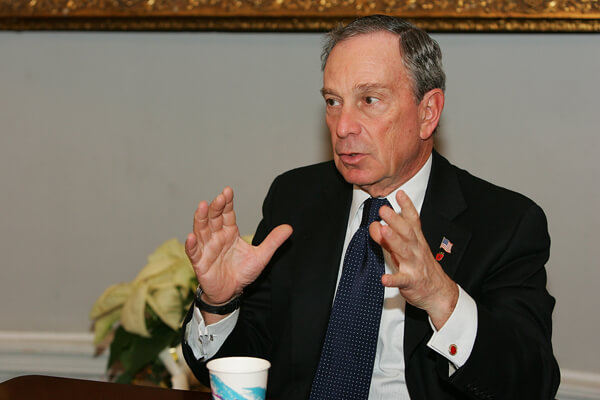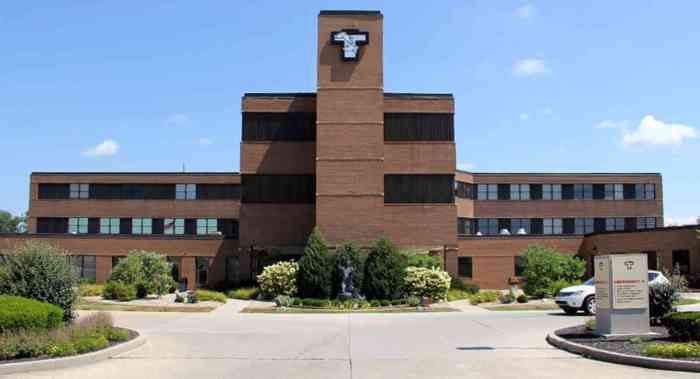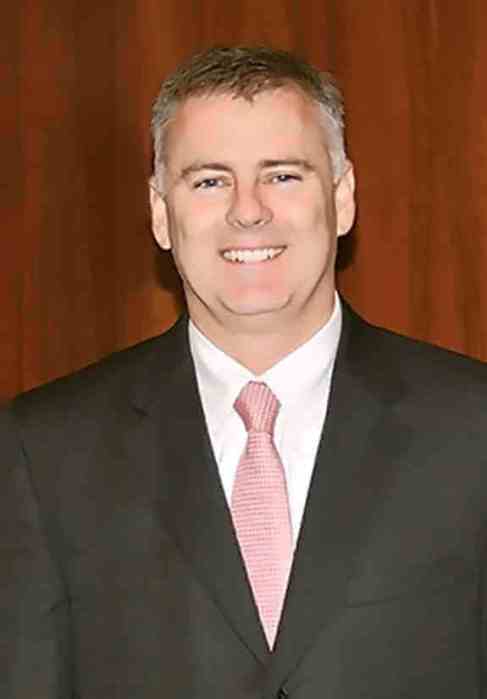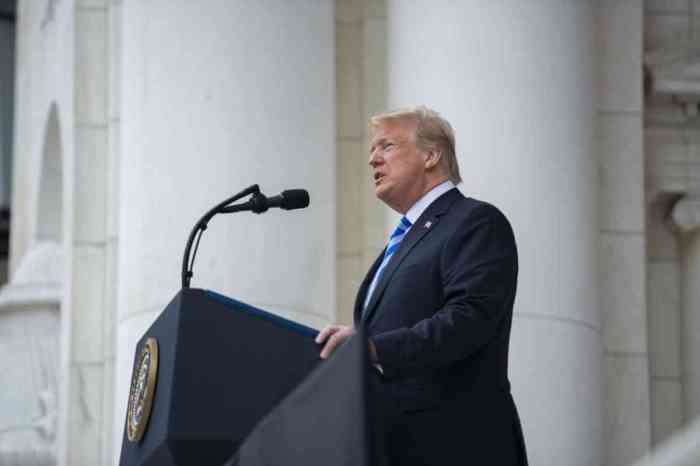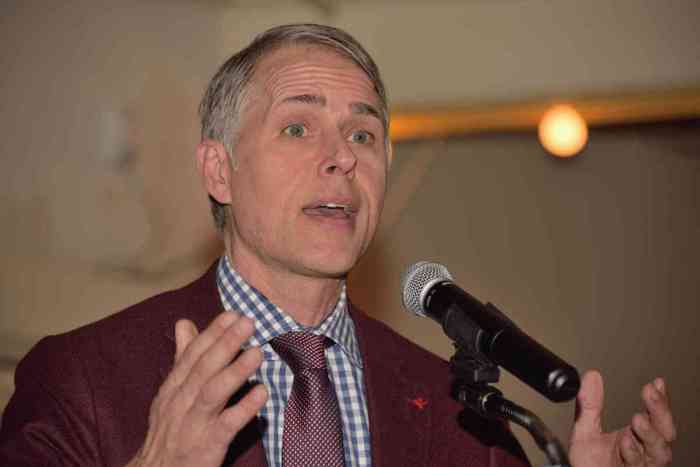Presidential candidate Mike Bloomberg rolled out his platform on LGBTQ issues January 28 and used a media call with reporters to place an emphasis on his achievements of the past while sidestepping some major issues facing the community today.
The former New York City mayor — who was once a Democrat, then a Republican, then an independent, and now a Democrat yet again — recalled coming out in favor of marriage equality in 2005 and later officiating marriages of same-sex couples.
He painted a rosy picture of what was a far more complicated record on marriage equality. While Bloomberg indeed endorsed marriage equality in 2005, he simultaneously appealed a state ruling that same year declaring that city clerks must issue marriage licenses to same-sex couples. He later poured money into the fight in Albany, but despite his being the largest donor to the Republican Senate majority at the time, there is no indication he helped bring around the four GOP votes that won the day for marriage equality in 2011.
Bloomberg’s plan, unveiled in detail on the same day as the media call, largely reiterated the policies pushed by his Democratic rivals in the race. He cited the need to pass the Equality Act and the importance of addressing disparities in healthcare, protecting LGBTQ youth and families, safeguarding queer folks from harm in the criminal justice system, and fighting for the rights of queer people at home and abroad.
Many points in his plan were centered on unraveling Trump’s damage — like restoring Department of Housing and Urban Development policies protecting trans and non-binary folks and reinstating protections for youth in schools.
But Bloomberg’s plan made no mention of the decriminalization of sex work, and a campaign spokesperson on the call told Gay City News that the candidate does not support decriminalization.
And while Bloomberg conveyed that he would ensure coverage for gender-affirming care, he also touted a very limited “Medicare-like” public option plan that would be reserved for uninsured low-income folks in states that have yet to expand Medicaid under the Affordable Care Act. Beyond that, the former mayor said his intention was to “protect and expand” ACA enrollment.
That approach to healthcare could exclude many individuals from his so-called public option — including those who have shoddy coverage through their employers — and could draw the ire of voters who have grown frustrated with steep premium costs under Obamacare. In addition to gender-affirming care, many LGBTQ folks are already saddled with mounting healthcare bills for routine care or small procedures that often require individuals to pay thousands to meet deductibles before proper insurance coverage kicks in.
Bloomberg’s plan speaks of increasing “access” to PrEP by making it available without a prescription and implementing a PrEP subscription service that would include some government subsidies to cover costs.
As part of his plan to end the HIV/ AIDS epidemic by 2030, Bloomberg is vowing to increase funding for the Ryan White CARE Act, eradicate laws criminalizing exposure to HIV, and divert from abstinence-only education programs and instead prioritize comprehensive sexual education. As mayor, he resisted restoring the classroom condom education that had been curtailed under his predecessor, Rudy Giuliani.
Bloomberg, who entered the 2020 race only in November, has flooded airwaves with advertisements, pumping hundreds of millions of dollars from his own fortune into his campaign. He has made some gains in the polls since entering the race, but has yet to qualify for debates, still trails top-tier candidates by significant margins, and is skipping early states like Iowa and New Hampshire.
Significantly, Bloomberg has vowed to keep up his impressive pace of spending for the ultimate Democratic nominee even if his own candidacy falls short.
Meanwhile, Bloomberg’s mixed record on LGBTQ issues during his time as mayor — and his divisive policies on policing, most prominently the explosion of stop and frisk episodes under his watch — has left the city’s queer community with little enthusiasm for his 2020 bid. That was evident at the Stonewall Democratic Club of New York City’s presidential endorsement meeting on January 22 when skeptical club members peppered Bloomberg surrogate Christopher Gonzalez with questions about a range of issues, including why he was late to supporting same-sex marriage.
The next night, the Bloomberg campaign opted not to send a surrogate to Lambda Independent Democrats of Brooklyn’s presidential endorsement meeting.

